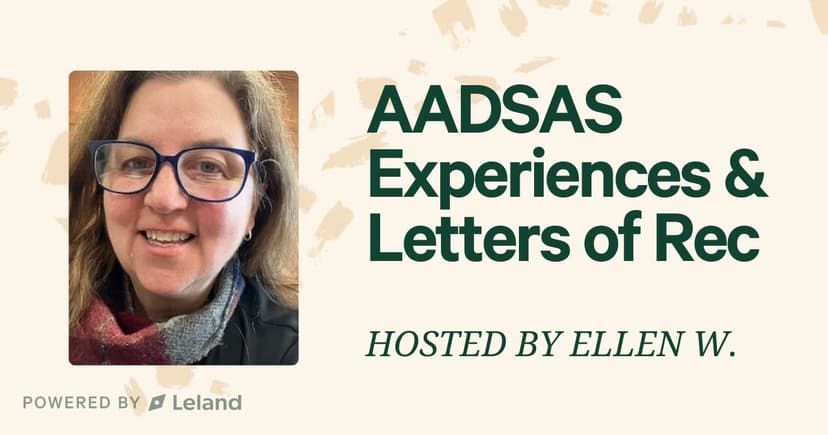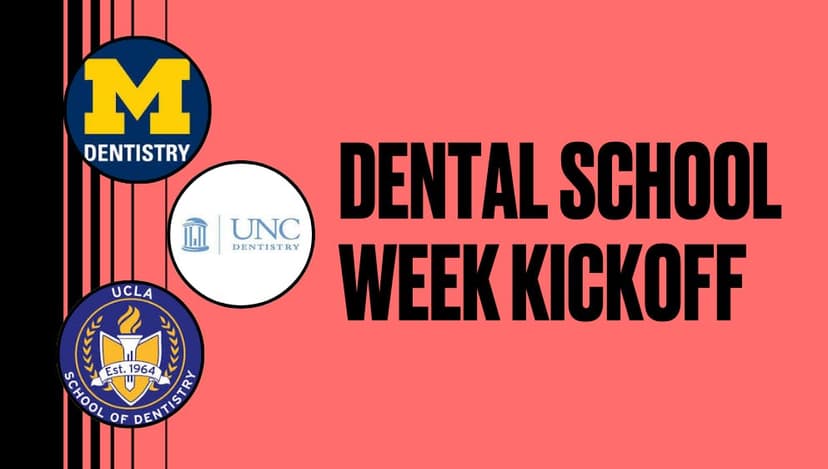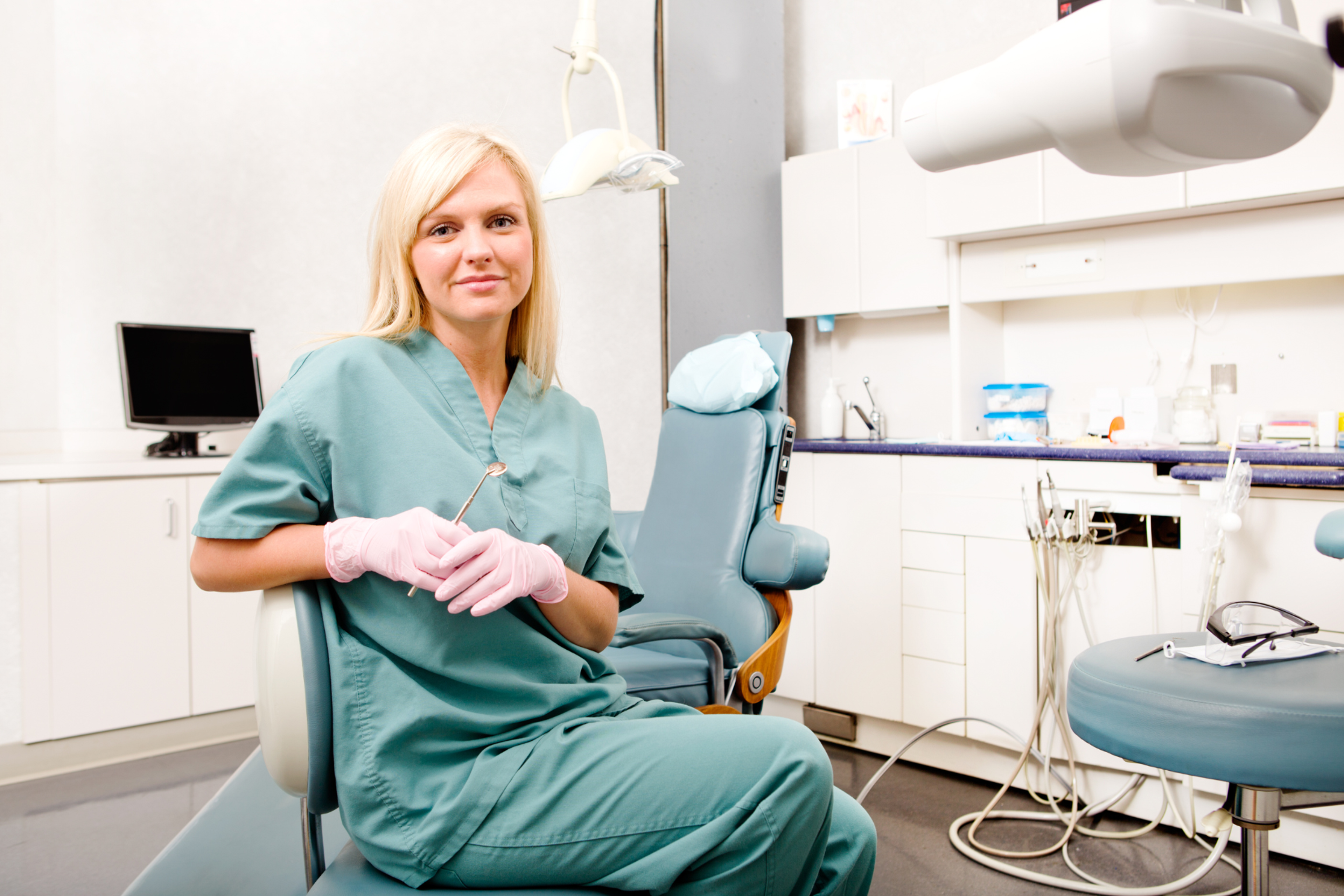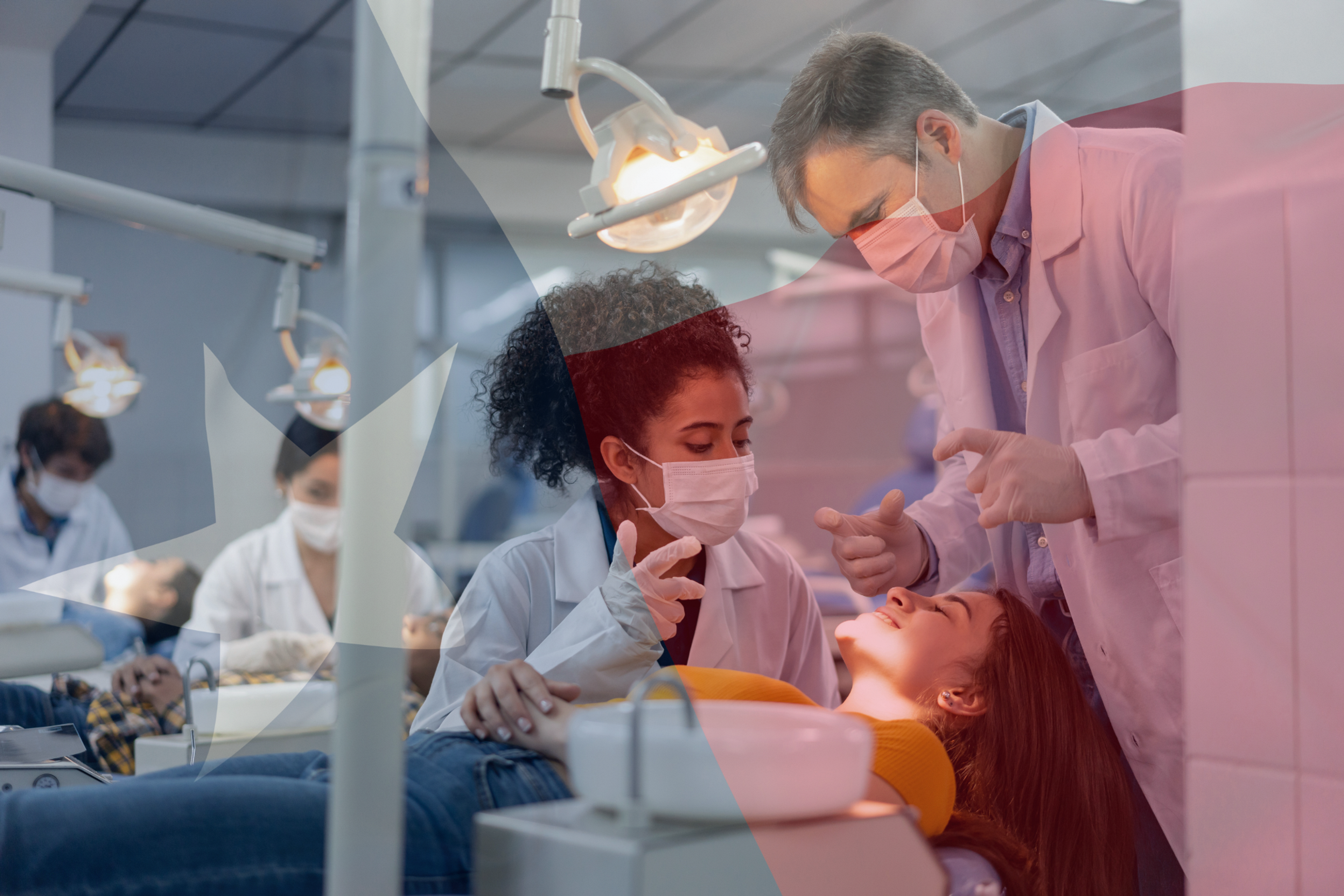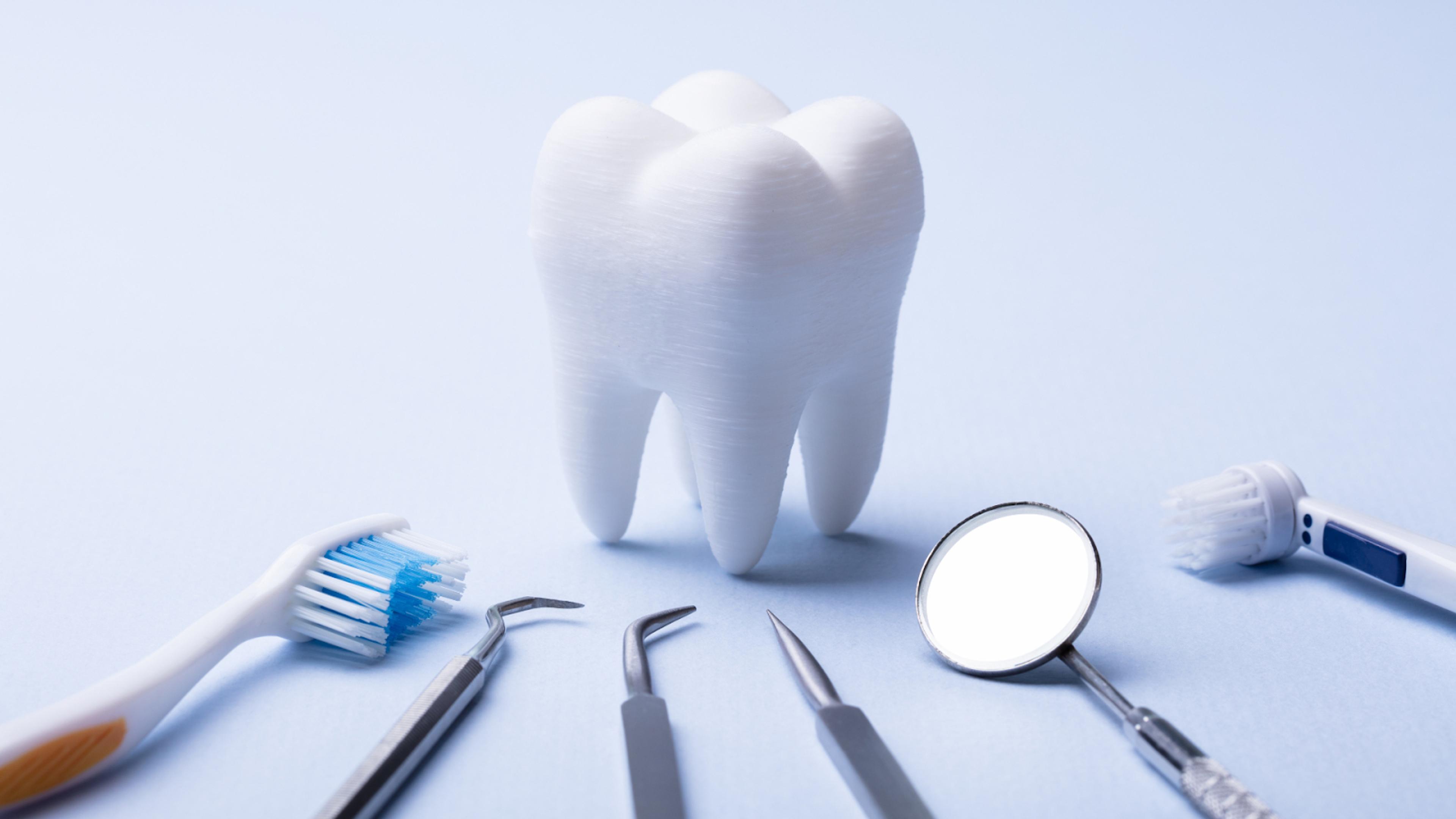University of Iowa College of Dentistry: Program & Application Overview
Applying for the DDS program at the University of Iowa College of Dentistry and Dental Clinics? Learn all about the application process and program to maximize your chances of admission.
Posted July 2, 2025

Join a free event
Learn from top coaches and industry experts in live, interactive sessions you can join for free.
Table of Contents
If you’re an aspiring dentist, the University of Iowa College of Dentistry and Dental Clinics may be one of the dental schools on your list. The University of Iowa College of Dentistry offers a rigorous education and more than 25 community programs, training more than three-fourths of Iowa dentists. Iowa Dentistry is also one of two dental schools in the country to offer all American Dental Association-accredited specialty training programs. In this article, we’ll go through the requirements and materials needed to apply for the DDS program at Iowa.
University of Iowa Dental Class Profile (Class of 2027)
- Class Size: 80
- Applicants: 1,075
- Acceptance Rate: 7.4%
- IA Residents: 70%
- Minority Students: 28%
- Average Overall GPA: 3.71
- Average Science GPA: 3.62
- Average DAT Score (AA): 21
- Average DAT Score (PAT): 21
University of Iowa College of Dentistry DDS Application Overview
Application Deadlines (2025)
| Event | Date |
|---|---|
| ADEA AADSAS opens (FAP opens Apr 16, 2025) | May 13, 2025 |
| First day to submit AADSAS | June 3, 2025 |
| AADSAS application deadline | September 15, 2025, 11:59 pm EST |
| Cancellation deadline for incomplete AADSAS apps | September 30, 2025, 11:59 pm EST |
| Interview invites begin | August 2025 |
| Acceptance decisions begin | December 15, 2025 |
Admissions operate on a rolling basis, but preference is given to early applications. Deadlines may be subject to change.
Academic Prerequisites
To be eligible to apply to the DDS program, you’ll need to complete certain academic prerequisites for letter grades and a total of at least 90 credit hours. The UI College of Dentistry requires a GPA of 2.5 or higher, but it strongly recommends earning a C or higher in all prerequisites and a GPA of at least 3.7.

- Physics: 8 hours with at least 2 hours of lab work
- General Chemistry: 8 hours with at least 2 hours of lab work
- Organic Chemistry: 8 hours with at least 2 hours of lab work
- Biochemistry: 3 hours covering basic concepts in modern biochemistry and molecular biology
- Biology: 8 hours with some lab work, one year in general biology or zoology
- Upper-level courses in gross anatomy, cell biology, or physiology are recommended
- English: Composition, rhetoric, or speech courses required for a bachelor's
- Electives: 90 hours for a well-rounded background in the social sciences, philosophy, psychology, history, foreign languages, business, accounting, and mathematics
AP credit can be used to fulfill requirements if accepted by your undergraduate institution and listed on your transcript.
DAT Scores
You’ll need to submit official DAT scores from the last three years to your AADSAS application. The University of Iowa College of Dentistry requires at least a 15 Academic Average and will only consider applications for admission once official scores are received, so applicants are highly encouraged to complete the DAT before applying.
Letters of Evaluation
You’ll also need to submit three letters of evaluation in your AADSAS application, with the option of submitting one additional letter. These letters should be written on letterhead, signed, and dated. The admissions committee recommends you choose evaluators who are familiar with both your academic and non-academic characteristics, such as an instructor, faculty member, dentist, academic advisor, or employer.
Job Shadowing
Dental shadowing is not required to apply, but it is highly recommended for applicants to gain exposure to general dentistry, specialty areas, running a private practice, or patient care. The UI College of Dentistry encourages applicants to gain a depth and breadth of shadowing experience under multiple practitioners.
Supplemental Essay Questions
Within your AADSAS application, you’ll find the following supplemental essay prompts:
Why do you feel that you are well prepared for a career in the dental profession? (2000 characters) Tell us about a time your integrity was challenged. (2000 characters) Besides dentistry, what are you passionate about? (2000 characters) Share obstacles that you may have overcome to achieve your goals. (2000 characters) In which type of community or setting would you like to practice? (2000 characters) How do you plan to use your dental education after you graduate? (2000 characters) Why the University of Iowa College of Dentistry? (2000 characters)
If you indicated that you are a part of an underserved community, you will need to elaborate within 2000 words.
In your supplemental essays, you should articulate your own passion for dentistry, qualities that set you apart from other applicants, and knowledge of the unique offerings at the College of Dentistry at UIowa. The admissions committee is looking for not just academically successful applicants, but also applicants who can demonstrate personal growth from diverse backgrounds.
Interviews
After submitting your application, you may be invited to interview for admission. You’ll have the option to interview in-person at the campus in Iowa City or virtually. Domestic interviewees will need to pay a $60 processing fee, and international interviewees will need to pay a $100 processing fee. Most of the questions are behavioral, so it’s important you prepare well to put your best foot forward.
Our Tips for the Iowa Dental School Interview:
- Practice! In behavioral interviews, it’s important to come across as enthusiastic, authentic, and passionate about dentistry. Try practicing with mock interviews with an experienced admissions interviewer, such as a dental admissions coach
- Demonstrate how you align the school’s mission, values, and vision. The College of Dentistry aims to “advance oral health for the people of Iowa and beyond through education, research, and person-centered care” and is committed to “the core values and vision of student success; research and discovery; engagement; and diversity, equity and inclusion”
- Review the DDS program in detail and come prepared with questions for your interview to demonstrate enthusiasm for the school

University of Iowa College of Dentistry DDS Program Overview
The four-year DDS curriculum at the University of Iowa emphasizes critical thinking, professionalism, health promotion, interpersonal skills, cultural competency, interprofessional practice, and practice management. With clinic experiences beginning in D1, dental students at the University of Iowa hone their skills under the guidance of world-class faculty.
Curriculum
D1: First-year students will take foundational biomedical science courses in biochemistry, physiology, general histology, and human gross anatomy and preclinical courses covering operative dentistry, oral radiology, cariology and preventive therapies, periodontics, and more. D1s will also participate in an advanced simulation lab to develop technical skills and practice procedures such as local anesthesia, nitrous oxide, start IV, rubber dams, scanning, alginate impressions, diagnostic tests, extraoral and intraoral exams, probing, prophylaxis and polishing. First-years will also begin working in the clinic towards the end of the year.
D2: Students will complete biomedical science courses in microbiology, human pathology, and pharmacology and preclinical courses covering topics such as oral pathology, pediatric dentistry, clinical preventive dentistry, and oral diagnosis. They’ll also complete rotations in Preventive and Operative dental clinics and shadow in radiology and oral diagnosis clinics.
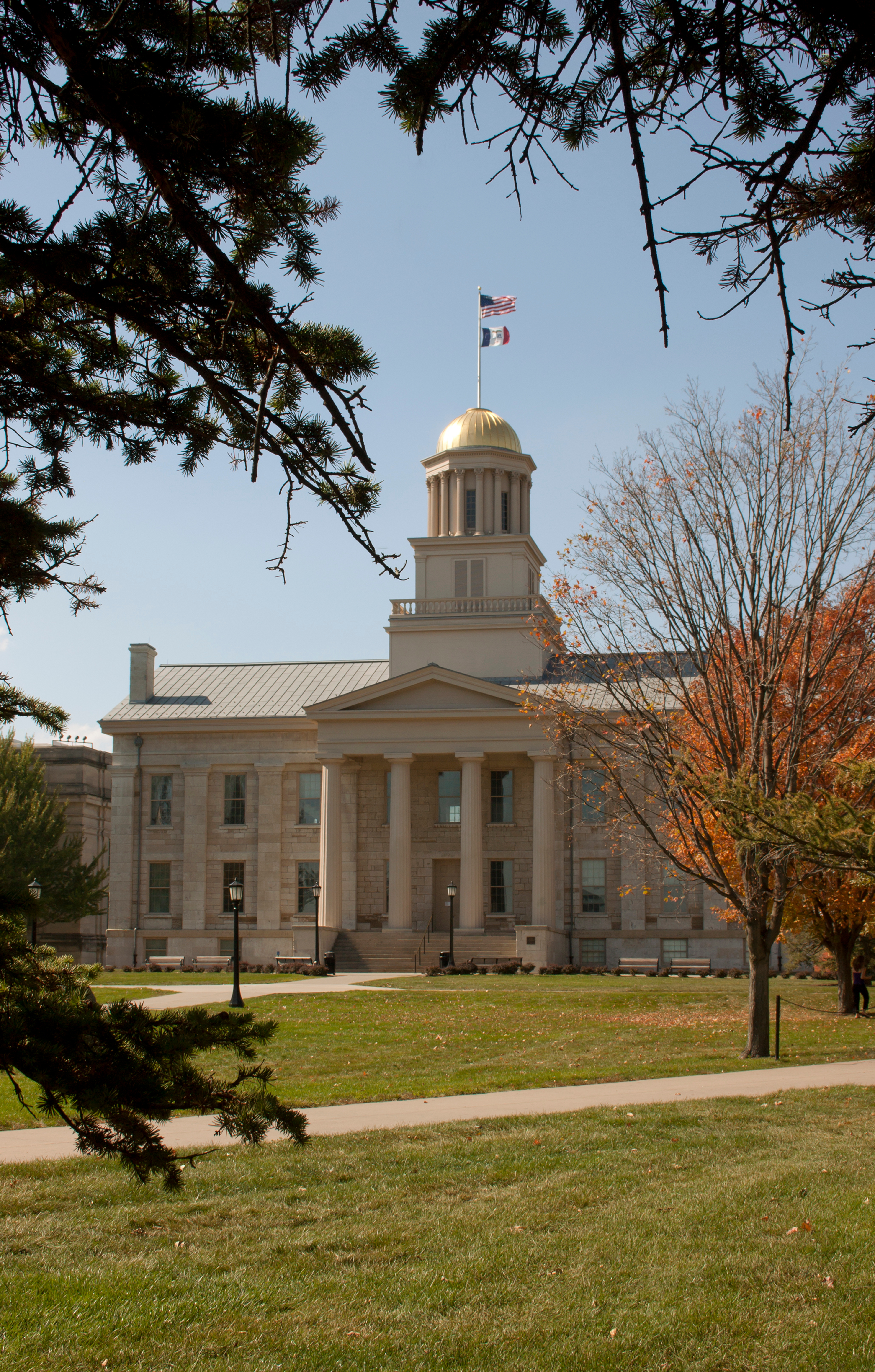
D3: Throughout the third year, dental students will complete additional courses, but spend most of their time in the following clerkships, or multidisciplinary rotations:
- Operative and pediatric clerkship: 10 weeks
- Oral and maxillofacial surgery clerkship: 5 weeks
- Oral diagnosis, pathology, and radiology clerkship: 5 weeks
- Endodontics, prosthodontics, and periodontics clerkship: 20 weeks
D4: In their final year, students will complete four didactic courses and gain additional hands-on experience through the following:
- Admissions and emergency clinic: 2 weeks
- Geriatrics and special needs clinic: 4-5 weeks
- Family dentistry clinic: 30 weeks
- Additional clinical exposure: dental auxiliary utilization, oral and maxillofacial surgery, and pediatric dentistry
- Extramural community-based rotation: 5 weeks
- Sites include Iowa hospitals, nursing facilities, and community health centers, as well as out-of-state sites such as Indian Reservations and Federally Qualified Health Centers
- Broadlawns Medical Center, Des Moines
- Colorado Migrant Program
- Community Health Care, Davenport
- Community Health Center of Southeast Iowa, Columbus City
- River Hills Community Health Center, Richland, Ottumwa, Centerville
- Indian Health Service Programs, Alaska, Michigan, Minnesota, South Dakota
- Des Moines Health Center
- St. Luke’s Dental Health Center
- Geriatrics and Special Needs Program
- Primary Health Care, Des Moines, Marshalltown
- Private Practice preceptorship: Davenport, Ames, Laurens
- Special Field Clinic
- Siouxland Community Health Center
- VA Medical Center, Des Moines
- Sites include Iowa hospitals, nursing facilities, and community health centers, as well as out-of-state sites such as Indian Reservations and Federally Qualified Health Centers

Dental Student Research Program
About 40% of all DDS students participate in this program, under the guidance of a faculty member. Students have the opportunity to publish research papers, including as first authors, and present their work at national conferences.
The core research areas of the College of Dentistry are:
- Biostatistics and computational biology
- Bioengineering, tissue engineering, stem cells, biomaterials, and materials research
- Clinical, translational, and big data research
- Craniofacial, oral biology, genetics, and dental development
- Immunology, inflammation, microbiology, caries, and microbiome research
- Oral cancer
- Oral health policy research
- Public health, epidemiology, and behavior science

Cost of Attendance
As a public dental school located in the affordable Iowa City, the University of Iowa College of Dentistry is more affordable than most. However, the cost of attendance can still be a significant financial burden, especially for non-residents.
| D1 | D2 | D3 | D4 | |
|---|---|---|---|---|
| Resident Tuition | $55,039 | $55,039 | $55,039 | $55,039 |
| Non-resident Tuition | $80,177 | $80,177 | $80,177 | $80,177 |
| Academic Expenses | $24,252 | $15,330 | $11,730 | $11,730 |
Students interested in research may receive the Iowa Institute of Oral Health Award. Students committed to practicing in rural, underserved communities in the state may apply for the Delta Dental of Iowa’s FIND program for loan repayment of up to $200,000.
Final Thoughts
Applying to dental school, especially a highly respected program like the University of Iowa’s, takes more than just good grades and a solid DAT score. It takes clarity about your goals, a strong narrative, and a thoughtful strategy that ties together your academic, clinical, and personal experiences. If Iowa is on your radar, now’s the time to get serious about refining your application and standing out in a competitive pool.
If you’re unsure where to start or want expert guidance on your personal statement, school list, or interview prep, working with a dental school admissions coach can make a real difference. Our Leland coaches have helped countless students, traditional and non-traditional, craft successful applications to Iowa and other top programs. Browse top dental school coaches and book a free intro call to get personalized support for your journey.
For more information to help you on your journey to become a dentist, check out these resources:
- Writing a Winning Dental School Personal Statement
- The Most Common Dental School Interview Questions–and How to Answer Them
- University of Washington School of Dentistry: An Overview of Admissions Requirements
- What Do You Learn in Dental School?
- How to Become a Dentist: Application, Degree Programs, FAQs
- The Top 25 Dental Schools – and How to Get In
FAQs
Do I need to be a science major to apply?
- No, about 30% of the class of 2027 did not major in the sciences. As long as you meet the academic prerequisites, you are eligible to apply.
Are UIowa undergraduate students favored in admissions?
- No, about 23% of the class of 2027 attended UIowa for undergrad.
How can I learn more about dentistry and UIowa’s DDS program before applying?
- You can apply for the Pre-Dental Academy or the Summer Health Professions Education Program. You can also sign up for a call with the admissions director, a campus tour, or webinars on the school’s page.
How hard is it to get into the University of Iowa dental school?
- It’s competitive—the acceptance rate for the Class of 2027 was 7.4%, with an average GPA of 3.71 and average DAT scores of 21. Applying early and having a strong academic and personal profile can help boost your chances.
What DAT score do I need for Iowa’s dental program?
- You’ll need at least a 15 Academic Average to be considered, but the average DAT score for admitted students is around 21. Aim higher than the minimum to stay competitive.
Browse hundreds of expert coaches
Leland coaches have helped thousands of people achieve their goals. A dedicated mentor can make all the difference.
